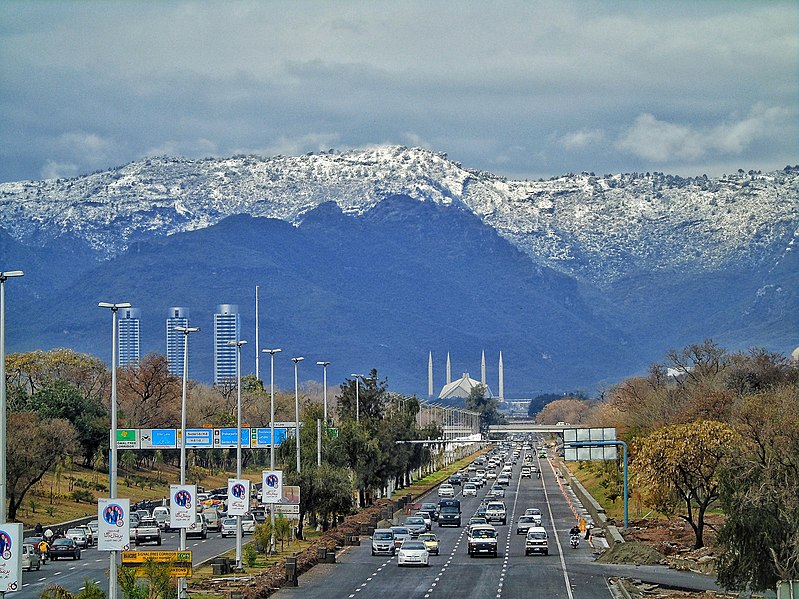Islamabad, the capital city of Pakistan, is a modern marvel nestled against the backdrop of the Margalla Hills. Established in the 1960s to replace Karachi as the capital, Islamabad embodies the country’s aspirations for progress and development. It is not only a political hub but also a cultural and economic center, drawing people from all over Pakistan and beyond.
The city’s layout, meticulously planned by Greek architect Constantinos Apostolou Doxiadis, reflects a harmonious blend of modernity and natural beauty. Wide boulevards, lush green parks, and well-manicured gardens are interspersed with modern infrastructure, including high-rise buildings, government offices, and diplomatic enclaves. The architecture of Islamabad showcases a mix of contemporary designs and traditional motifs, paying homage to Pakistan’s rich cultural heritage.
One of the most iconic landmarks in Islamabad is the Faisal Mosque, named after King Faisal of Saudi Arabia, whose funding contributed to its construction. This magnificent structure, with its unique triangular shape and white marble façade, is one of the largest mosques in the world and serves as a symbol of the country’s Islamic identity.
Another notable feature of Islamabad is its diplomatic enclave, home to numerous embassies, consulates, and international organizations. This area reflects the city’s importance on the global stage, hosting diplomatic missions from countries around the world and facilitating international cooperation and dialogue.
Beyond its political and diplomatic significance, Islamabad offers a wide range of cultural and recreational activities for residents and visitors alike. The city boasts a vibrant arts and cultural scene, with museums, galleries, and theaters showcasing Pakistan’s rich artistic heritage. Additionally, the Margalla Hills National Park, located on the outskirts of the city, provides opportunities for hiking, picnicking, and wildlife spotting, offering a welcome escape from the urban hustle and bustle.
Islamabad’s diverse population adds to its dynamic character, with people from all ethnicities, backgrounds, and walks of life contributing to the city’s cultural tapestry. From bustling markets and lively street food stalls to upscale shopping malls and fine dining restaurants, Islamabad offers something for everyone, catering to a wide range of tastes and preferences.
In summary, Islamabad stands as a testament to Pakistan’s aspirations for progress, development, and harmony. With its modern infrastructure, natural beauty, and vibrant culture, the city embodies the country’s rich diversity and potential, serving as a beacon of hope and opportunity for its residents and visitors alike.

